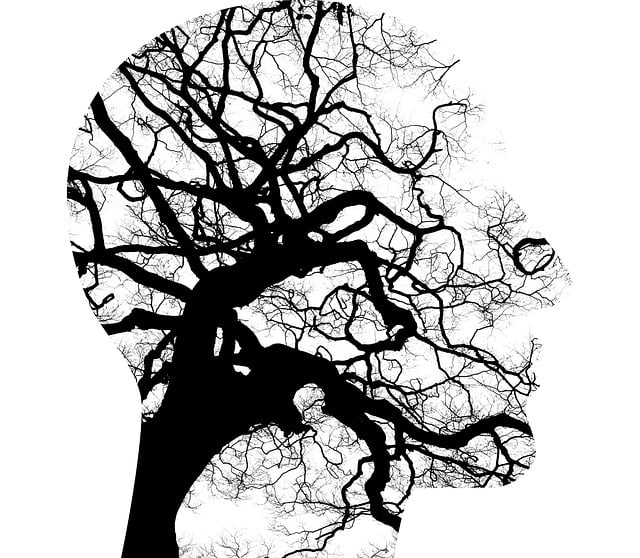Lafayette Codependency Therapy (LCT) is a powerful therapeutic approach addressing complex relationship dynamics and mental health issues rooted in familial or cultural contexts. Combining reflective steps, cultural sensitivity, and journaling exercises, LCT empowers individuals to explore their identities and develop coping skills. Effective mental wellness coaching programs blend established techniques like LCT with modern innovations, such as empathy-building podcast series, creating supportive communities for vulnerability sharing and growth. A structured approach centered on Mind Over Matter, combined with qualitative and quantitative success measurement, ensures impactful coaching interventions, especially through Healthcare Provider Cultural Competency Training for inclusive burnout prevention.
In today’s fast-paced world, mental wellness coaching programs have emerged as essential tools for personal growth. This article explores the development of such programs with a focus on Lafayette Codependency Therapy—a revolutionary approach that addresses deep-rooted issues. We delve into the principles and foundations of this therapy, offer insights on designing effective coaching interventions, and discuss strategies for implementing and measuring success. By understanding Lafayette Codependency Therapy, professionals can create tailored programs that foster lasting mental wellness.
- Understanding Lafayette Codependency Therapy: Principles and Foundation
- Designing Effective Mental Wellness Coaching Programs
- Implementing and Measuring Success in Coaching Interventions
Understanding Lafayette Codependency Therapy: Principles and Foundation

Lafayette Codependency Therapy (LCT) is a transformative approach that addresses complex interpersonal dynamics and fosters healthier relationships. This therapy is founded on the belief that many emotional and mental health issues stem from codependent patterns, often learned within familial or cultural contexts. By identifying and challenging these unhealthy behaviors, LCT aims to enhance individual well-being and strengthen personal boundaries.
The principles of Lafayette Codependency Therapy emphasize self-discovery and empowerment through a series of steps that encourage individuals to reflect on their relationships and past experiences. This process involves exploring one’s identity, understanding the impact of early influences, and learning effective coping skills for managing codependent tendencies. Cultural sensitivity is a key aspect, recognizing that personal narratives are shaped by diverse cultural backgrounds, which can significantly impact an individual’s mental wellness journey. Incorporating journaling exercises tailored to mental health awareness can further support clients in articulating their experiences and tracking progress.
Designing Effective Mental Wellness Coaching Programs

Designing Effective Mental Wellness Coaching Programs requires a nuanced approach that blends proven therapeutic techniques with innovative strategies tailored to modern challenges. Incorporating elements like Lafayette Codependency Therapy can help coaches address complex interpersonal dynamics and promote healthier relationship patterns.
Beyond individual therapy, Mental Wellness Podcast Series Production offers an engaging way to expand reach and provide accessible resources. By integrating Empathy Building Strategies throughout sessions, coaches foster deeper connections with clients, creating a safe space for vulnerability and growth. This holistic approach ensures that Mental Wellness Coaching Programs Development remains relevant and impactful in addressing the evolving mental health landscape.
Implementing and Measuring Success in Coaching Interventions

Implementing successful coaching interventions requires a structured approach that aligns with proven mental wellness principles. At its core, Lafayette Codependency Therapy emphasizes the power of Mind Over Matter—a transformative concept that equips individuals with the mental tools to overcome challenges and foster positive change. This therapeutic methodology is particularly effective in coaching settings as it promotes self-awareness, resilience, and coping strategies tailored to each client’s unique needs. By integrating this approach, coaches can facilitate meaningful progress, helping clients navigate personal growth journeys.
Measuring success within these programs is crucial for both accountability and client satisfaction. Coaches should employ qualitative and quantitative methods, such as regular check-ins, progress tracking, and client feedback mechanisms. Healthcare Provider Cultural Competency Training plays a vital role in ensuring diverse populations receive effective coaching. This training equips coaches with the cultural sensitivity to address various barriers, including systemic issues that might contribute to burnout prevention—a significant concern among many professionals. Through such comprehensive strategies, mental wellness coaching programs can achieve tangible results while fostering an inclusive and supportive environment.
Mental wellness coaching programs, as exemplified by Lafayette Codependency Therapy, offer a promising approach to supporting individuals in achieving better mental health. By understanding the underlying principles and designing effective interventions, coaches can create tailored programs that address specific needs. Successful implementation and measurement of these programs ensure their efficacy, allowing for continuous improvement and positive outcomes for clients. Incorporating evidence-based practices like Lafayette Codependency Therapy into coaching methodologies expands access to quality mental wellness support.














